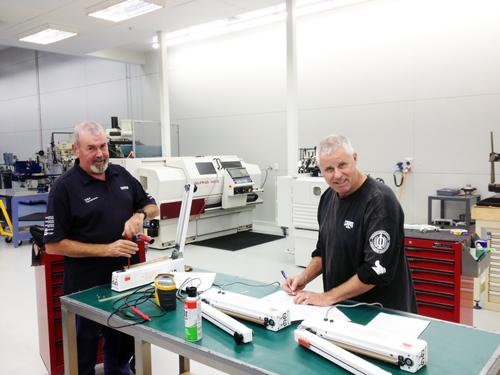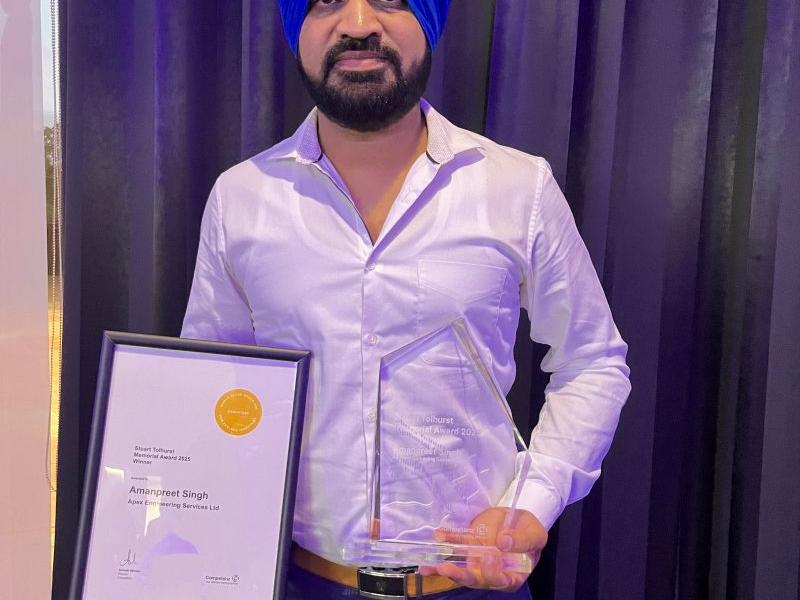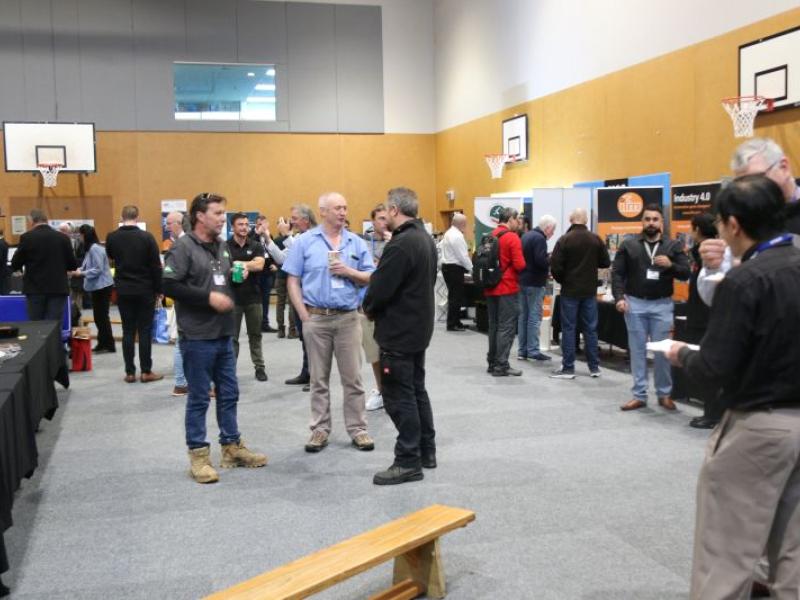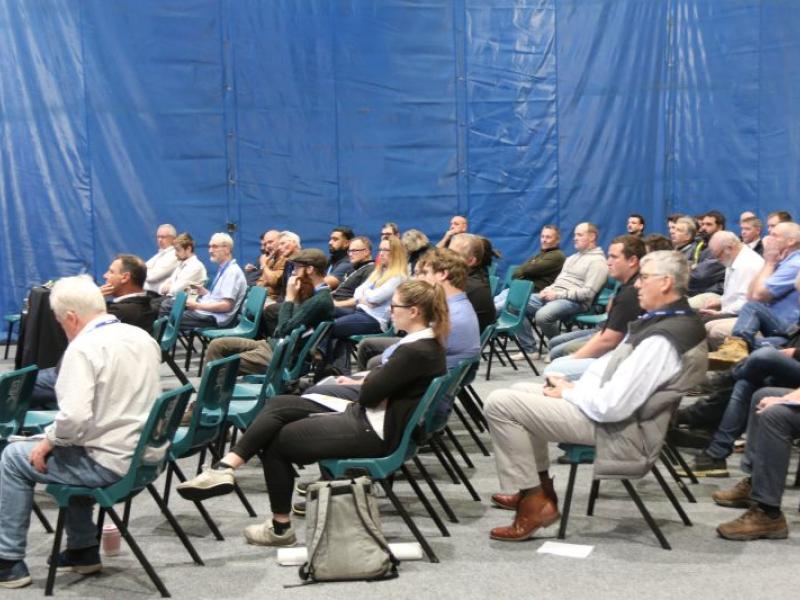Stick to the basics and document everything are the two rules that Fisher & Paykel Healthcare’s Jun Lanada lives by.
Jun is the maintenance manager at the firm’s Obstructive Sleep Apnoea (OSA) group, he has worked there for four years, and before joining the firm he worked at Nestlé.
The OSA group uses a wide range of production equipment, from silicon and thermal plastic moulding machines, to ultrasonic welding gear, industrial sewing machines, and there are assembly lines to keep running too.
“We need to know quite a lot about the components all this equipment uses,” says Jun. “It’s always a component that fails – not the whole machine.
“It is how they fail that we need to be aware of so we can do something to prevent them from failing again.”
Jun says his focus is on his team of maintenance technicians and engineers, as opposed to the equipment they are responsible for.
“I put my energies into coaching and guiding the team – because they are all experts,” he says.
“Our machines are all very different from one another, so what I try to do is spread the work around – so everyone gets to work on all the machines over time.
“I want to raise the skills of each team member, because I don’t want one person being the only expert on a particular machine – I prefer to have expert generalists so there are no worries when a person goes on holiday.”
Jun mixes it up by looking at who worked on a machine last time it needed servicing and then assigning someone different to the job next time.
“That doesn’t mean to say that each team member doesn’t have their favourite machines,” says Jun.
Having staff get to know all new equipment is a key factor in how Jun runs his maintenance crew.
“Before we turn on the switch of any new equipment, a few things need to be in place,” he says. “These can include a maintenance strategy and maintenance procedure. In addition, all maintenance staff are trained on new machines. If this is not possible, then a few key people are trained and they share the knowledge with their colleagues.”
Jun says new equipment is arriving all the time, with the firm “growing at a rapid rate”.
“The firm is doubling in size every five years,” he says. “But it translates into plenty of equipment coming in – every month something new is commissioned.”
When it comes to ordering equipment, Jun’s team is given a say before the purchase order is signed.
“We are consulted because we hold a lot of data on the performance and reliability of the equipment,” he says. “For example, if a new moulding machine is being ordered, and colleagues are interested in the types of failures we have encountered, then the best people to ask are the maintenance engineers.
“If we have had a bad experience with a particular manufacturer then we might advise that we not use them.”
On the other side of the coin, Jun’s team is happy to provide feedback to manufacturers to help improve their products.
Working with equipment suppliers is a big part of the protocol at Fisher & Paykel, says Jun. He says by sharing information and working together, they all help contribute to more reliable machines and maintenance procedures.
“We do work closely with our suppliers during the full lifecycle of the equipment,” he says. “My style is to not solely depend on the instructions and advice of the original equipment manufacturer (OEM).What I’d rather rely on is the actual performance of the equipment.
“OEMs are experts in their equipment, they are not experts in using the equipment. We have the knowledge, we have the data, so we combine our knowledge.”
“We can come up with recommendations to say that if a particular part was changed to a different specification, then it could be a very successful product. It’s a circle, a feedback loop.
“I’ve adopted this way of working in previous roles and it has proven to be very effective and robust process.”
Jun says feedback is often taken positively by suppliers.
“Some vendors take it very positively, but there are some who have not reached that maturity and realise the value of customer feedback,” he says. “You get the odd ones that just ignore you.”
One good example is when Jun suggested that a component of a moulding machine be changed from aluminium to stainless steel.
“A moulding machine failed three years ago and we did a root cause analysis (RCA) that showed the water section was developing cavities,” says Jun.
“That failure could happen to the rest of the moulding machines we had on site – back then we had 20 machines, today we have more than 40 of them.
“So we suggested the material of this part be changed to stainless steel. The cavitations would still be there, but the equipment would not fail. This was done on new machine and we retrofitted the older machines with the revised part.
“All the maintenance tasks are recorded, and that equates to plenty of data for continuous improvement and reviewing preventative maintenance procedures – to see if they are effective enough to meet the company’s needs.”
RCA is a big part of Jun’s routine.
“When breakdown’s happen, each of the technicians here are required to do a root cause analysis, to go deep into the problem and not do band-aid fixes,” he says. “Everyone in the team has been trained in RCA techniques.
“So if a bearing fails, for example, they know to not just replace the bearing, but to ask ‘why it failed’. It could be a faulty bearing, poor lubrication, been installed incorrectly, or something else – it’s all part of the ‘five whys’. To ask five ‘why’ questions in succession.
“If we just replace the bearing, and don’t resolve the root cause of the failure, then it will happen again, and again, and again.”
Fisher & Paykel is a huge company when compared to most of those in New Zealand, but Jun says there are still plenty of things smaller firms can do to help themselves.
“Regardless of the technology you use, or the size of your operation, the maintenance team needs to focus on the basics,” he says.
“Make sure all members of the team have the proper skills, and the proper tools, document all the work done, and use data to make decisions. I think these principals apple to all companies. Get the basics right and the rest will follow.”






